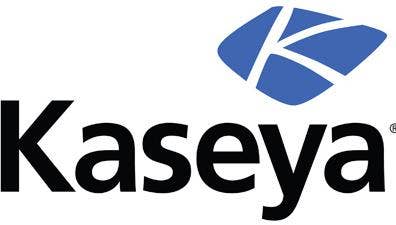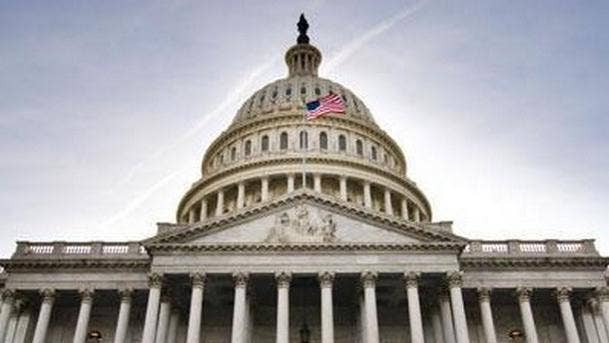Kaseya CEO Fred Voccola On COVID-19, Connect IT And ConnectWise
‘Show me a business growing around 20 percent a year. We‘re well over $300 million. We’re 1,380 people worldwide. We’re not a small business. My peers are having a much more difficult time. We have not laid off a single employee, nor will we lay off employees. We’re actually still hiring,’ says Kaseya CEO Fred Voccola.

Thriving In The Face Of A Tough 2020
The adverse impact the COVID-19 pandemic has had on business has been unprecedented, with a wide part of the U.S. economy seeing widespread business closures, revenue crashes, and record unemployment. However, one part of the economy, the technology sector, has been somewhat immune to the impacts, and indeed many in the space have thrived.
That‘s the case with Kaseya, a provider of platforms and services for managed service providers. Kaseya CEO Fred Voccola told CRN that MSPs--and his company--have done well this year because they provided the kinds of technology and services businesses needed to survive as the economy retreated in the face of the pandemic.
Voccola also talked about the relatively recent decision to move Kaseya‘s Connect IT conference to a virtual format, and said that if it were a live event he would go, but that if he were an MSP he probably wouldn’t.
The conversation also touched on why Kaseya is hiring people even as competitors ConnectWise and Datto are experiencing layoffs, the fall-out from MSP-focused ransomware attacks, and a hint or two about potential upcoming acquisitions. One of those hints points strongly towards security.
Voccola is not one to mince words or hold back his thoughts on Kaseya, its competitors, and the industry. Turn the page to learn more.
= = = = =

How is Kaseya doing during the COVID-19 coronavirus pandemic?
We‘re doing quite well. And I hate saying that at a time where a lot of people are not. It kind of sucks to think about how many people have lost their jobs and how many people are freaking out. This economic downturn is unlike any that I’ve ever seen for a couple of reasons. One, the acuteness of it was instant. Businesses were told you can’t operate. You have to shut your doors. And it’s tough. It wasn’t as if you see a cycle coming and companies can react to it. A lot of people around the world have really suffered. We at Kaseya are lucky because we’re in the right industry.
What do you mean by that?
Someone asked [surfing legend] Kelly Slater what is the key to being the best surfer. And he said something like, well, the first thing you have to do is pick the right wave to surf. And we‘ve done that. Being in technology, focusing on small to midsize businesses, you’re riding the right wave. And that gives us about as much protection as anyone can get.
= = = = =

How else has COVID-19 impacted IT?
COVID has accelerated a lot of macro trends that were benefiting Kaseya. One of them is small to midsize businesses have been adopting technology at a rate that hasn‘t been seen since enterprises did it in early 2000. And the economic reality of COVID has forced small to midsized businesses to further increase how much they spend on technology. Because now, unlike in the past where a small and midsized business--which by the way all get their IT from MSPs--would invest in technology for competitive advantage, now they have to do it literally to survive. And the best example I can think of are doctors’ offices. Most doctors’ offices in this country are independent businesses with five to 20 people. And people were not allowed to go to the doctor for non-emergencies. So 90 percent of their revenue goes down the drain. It’s not like a typical recession where revenues might be off 10, 15, or even 20 percent. They went to the near zero. The world has never seen that before. It’s never happened, even in times of war. The doctor’s office can’t be open, so we have to adjust. The only way they can get revenue is if they can figure out how to do telemedicine. And that’s how most doctors’ offices stayed open for a four-month or five-month window.
Has that impacted Kaseya's bottom line?
We‘ve been very lucky because our financial performance is incredibly good in this time. Our growth rate from March until the end of the year we’re forecasting right around 20 percent. In this crappy market, in the worst economy in history, we’re going to grow 20 percent.

How does that expected 20 percent growth compare to what Kaseya saw last year?
Last year we were around 28 percent. At the beginning of this year we thought we do around 26, 27 percent. This is all organic growth. Now we‘re saying we’ll do around 20 [percent]. So we took a bit of a hit. But show me a business growing around 20 percent a year. We’re well over $300 million. We’re 1,380 people worldwide. We’re not a small business. My peers are having a much more difficult time. We have not laid off a single employee, nor will we lay off employees. We’re actually still hiring.
Did Kaseya take advantage of any COVID-19 government programs, particularly the PPP (Payroll Protection Program)?
We don‘t take any of it. A.) we’re too big, and B.) it would be unethical because we don’t need it. That would be really sh*tty if we tried to do that. Pardon my French. It pisses me off when you hear about these big companies that are doing that. I think it’s bullsh*t. I think those people should look in the mirror really fricking hard.

How has Kaseya reacted to the pandemic?
We‘ve done some things to tighten our belt. We’ve done compensation reduction of the executive team, myself and the executive team, so we didn’t have to lay anybody off. Those compensation reductions are being returned as we’ve realized how well we’re doing, and we realized not only are we surviving but we’re taking market share from our competitors.
We‘ve put our foot back down the hiring gas, and we’re looking to add 250 people [by] the end of the year around the whole world. I’m hoping in this market that it’s a little easier to get the talent. A lot of my competitors have laid off a bunch of people. ...
From a pure business perspective, it‘s horrible to see what’s happened to our economy. You went from the best economy, arguably, of all time to the worst of all time in six weeks. And we’re doing incredibly well given that. We’re super grateful.
And the company is stepped up, our board of directors that stepped up. We‘ve done a lot of things for employees, and we’ve been able to retain our employee base so that we can better service our customers.

What impacts to MSPs are you seeing?
We‘re seeing that a lot of if not most small to midsized businesses who are the customers of our MSPs, while their businesses are suffering, they’re not cutting their IT spend like a lot of people thought they would. IT is what’s keeping most of these folks alive, the business that’s being directly driven by technology which needs IT to run on. So the MSPs are doing well.
[Furthermore,] companies that have internal IT with two to 10 to 15 IT people that historically haven‘t used MSPs are now realizing that they were under-skilled, and their capacity to deliver the amount of IT that their businesses need isn’t there. And we’re seeing those ’larger companies’ starting to co-source with an MSP as well as look to get rid of their IT group and go MSP. And this is great for our MSP community because these transactions are $30,000 to $100,000 a month. They’re larger companies. They’re still companies of 500 employees, not 3,000 or 4,000. But it’s a much more educated, much more sophisticated customer base, and the MSPs that are able to step up and deliver that are doing really well.

What has Kaseya done to help the MSP community during the pandemic?
We came out with something called Kaseya Cares. ... We‘ve had over 4,000 of our MSP customers sign up for it to date. The first part is, we’re opening up our Powered Services [as-a-service] capability at no charge to MSP for a good time. We then went out and contracted with [TruMethods Owner] Gary Pica, and we gave access to him and his consulting capabilities in conjunction with our Powered Services for free to MSPs. And that really helped a lot of MSPs figure out, ’Oh my God, this new world, how do I reprice, how do I repackage, what measurements should I look at?’ Because most MSPs are 20 people or less. And they don’t necessarily have two or three people focusing on the strategy of their business. They’re owner-operators. Their owners are getting crushed by their customers wanting everything. [What we’re doing] is it’s a great way of helping out that works really well.
The second thing we did, which is, I think, well above and beyond is, we took a little under $11 million from our balance sheet and we did direct financial assistance to MSPs. Not, ‘Oh hey, we’ll extend our support hours by two hours to help you.’ That’s a given. We gave real money and real dollars. We actually exhausted the money that we have set aside for it pretty quickly. We put between $10 million and $11 million of direct financial assistance into the pockets of MSPs. It felt really good doing some of that stuff.
Anything else?
We have a pretty decent sized legal organization and accounting organization, and we also work with a couple of really good legal firms around the world. We put together a program to help MSPs file for things like PPP loans. We helped them navigate the red tape of the bureaucracies of banks. If you‘re a 15-person MSP, you don’t know how to apply for a government loan. ... The MSPs are dealing with a giant sh*tstorm all at once. They don’t have a full-time lawyer on staff or a [chief financial officer]. So we opened up our employees, our partners, we actually hired some of our partners to make themselves available. And we did thousands and thousands of sessions with MSPs to help make sure that they all got as much as they could get from whatever government systems program around the world.
So between Powered Services and Pica‘s free consulting, taking over $10 million and putting it to work directly to the MSP, and helping them with their government filing, we did a lot. We have thousands of MSPs participate. It was pretty cool. We were actually super proud of that.

What is Kaseya's acquisition strategy?
We‘ve made, what, 10 acquisitions in the last six years. We are very acquisitive. We will be announcing a substantial acquisition at our Connect IT conference in August. Unfortunately, it’s gonna be a virtual conference because we can’t be physical anymore.
I expect us to do two to three deals a year. [And] I think we‘ll do two to three deals a year for the foreseeable future. They’re sometimes big, sometimes small. You’ll see a lot of acquisitions in the world of security. You’ll see a lot of acquisitions in the world of MSP efficiency. Things like that. Yeah, you’ll be seeing that from Kaseya moving forward.

How did Kaseya's Connect IT conference this month go to a virtual format? The change was only recently announced.
We wanted to do a live show. [But we heard] there‘s a better than 95-percent chance that Nevada would revert back to gatherings of more than 250 people will not be permitted. So we made the decision to say that IT Connect will be virtual this year. And it stinks. A lot of people are disappointed. The virtual [part] is awesome, by the way. [Our people] did a great job of making an amazing virtual experience.
A lot of people wanted just to get out, to go somewhere. We really, really wanted to be able to deliver that. As we tell our employees, in times of crisis or concern or insecurity, people look for any kind of stability whether it‘s family, religious institutions, some people with the government. People look for their companies for stability. We as much as we can like to make sure that we’re stable for our customers and for employees. I really thought we’d have it [in-person].
A lot of people probably would not be comfortable if you held the event in person.
I myself would have gone. But then when I got home, I would test immediately and quarantine myself from my parents and my family until I saw the results. Now, I have some flexibility that some other people might not have. [But] I don‘t I don’t want to mess with parents’ health. So if I had to go I would go. If I was an MSP, I probably wouldn’t have gone.

With all the ransomware going on, especially in the MSP business, what is Kaseya doing about it? And how has Kaseya been impacted?
It‘s been great for us because we have solutions that help people not click on the links that get them ransom. And on the back end, we have great solutions that if people are using our DR (disaster recovery) stuff and they get ransom, they just click to restore and tell the person ransoming to go pound sand. It’s great for our business.
Unfortunately not every customer out there, not every small business, listens to their MSP or procures advanced security solutions from their MSP. Most MSPs at this point are letting their customers know what they should be doing. They‘re not always very good at selling it, because who thinks they’ll be ransomed. ...
The people who conduct the ransomware are criminal. But it‘s good for the MSP community, and it’s good for us because law enforcement around the world spends very, very little against cybercriminals. like one-one-hundredth of what they spend against narcotics-based criminals. And the economic destruction from cybercrime, the GDP of it, if you will, is larger than the GDP of the illicit drug trade. It’s the Wild West. It’s really self-protecting because there’s no police to protect you from cybercriminals. The reality sucks, but it is what it is. So it presents huge market opportunities for MSPs.

What is your take on the news that ConnectWise might be laying off a lot of its people?
Well, it sucks. It‘s unfortunate that they haven’t been able to make the adjustments in their business to where they don’t have to do that. You know, I’m a very aggressive competitor. I enjoy the battle against the competitors. I don’t enjoy seeing companies not execute well so they have to lay off employees. That sucks.
You‘re not gonna see very many Kaseyans that are gonna shed a tear if ConnectWise isn’t doing well, and vice versa. We’re all competitors, right? It’s a hard job market out there. It sucks to be unemployed right now. It’s not as if you lost your job in April of 2019. That still sucks. But the labor market was very healthy then. We’re in the worst unemployment we’ve seen. It just sucks. I don’t like hearing that. Peoples’ lives are really getting messed up.
Are you seeing any anecdotal evidence that it might be impacting ConnectWise's partner base?
I think ConnectWise hasn‘t structured their business properly. ConnectWise laid a bunch of people off when Thoma Bravo bought it about a year-and-a-half ago. A bunch of people. They’ve done some weeding out over the year which hasn’t been announced. And now they’re announcing it again. I think that they’ve been too slow to structure their organization in an efficient way. [ConnectWise’s partners] aren’t suffering any more than ours. We have a lot of shared customers. I don’t think that there’s anything to that. I think that the product line-up, the go-to-market strategy, there’s a lot of challenges in their business. I think that’s probably what’s driving it. I think that they they’ve taken too long to adjust. And now they’re doing a knee jerk, and what’s gonna happen with this is, unfortunately their customers or their partners are going to take it on the chin. They’re trying to integrate Continuum. They’re trying to figure out what off-shoring means. A lot of good people that were working in Tampa and in-country are now out of work. People who have worked with ConnectWise and those people they’re comfortable with are gone. And that stinks for a partner or an MSP who right now the last thing they need is the vendors they’re working with to be confused and all over the place, because their customers are giving them so much pressure. You know it’s unfortunate.

Does that situation benefit Kaseya?
We‘re taking ConnectWise customers all the time. It’s happening more frequently now than it did four months ago. I think that there’s some underlying challenges that ConnectWise has, and they need to work through them. Arnie [Bellini, ConnectWise CEO,] sold the business. They had the leader of the company leaving. They’re operating under a private equity firm which is known for very aggressive cost cutting and value creation that way. There’s nothing wrong with that. It’s what they’re known for, as opposed to others that are more growth equity-driven. I think that the partner community there is going to suffer a bit, and it’s like the worst time in history to do that to your customer base.
Has this helped Kaseya's hiring at all?
They only clipped them [last month]. A lot of the ConnectWise employees were laid off in the state of Florida. ConnectWise is notorious for putting very aggressive non-competes in their employee contracts. So we would never solicit. There are legal issues and stuff, and we don‘t bother with it. We’ll see. Datto laid off a bunch of people. A lot of those are interesting, good people. We’ve hired one recently. We’re looking there as well, across the community. But I haven’t seen any fallout from this yet.